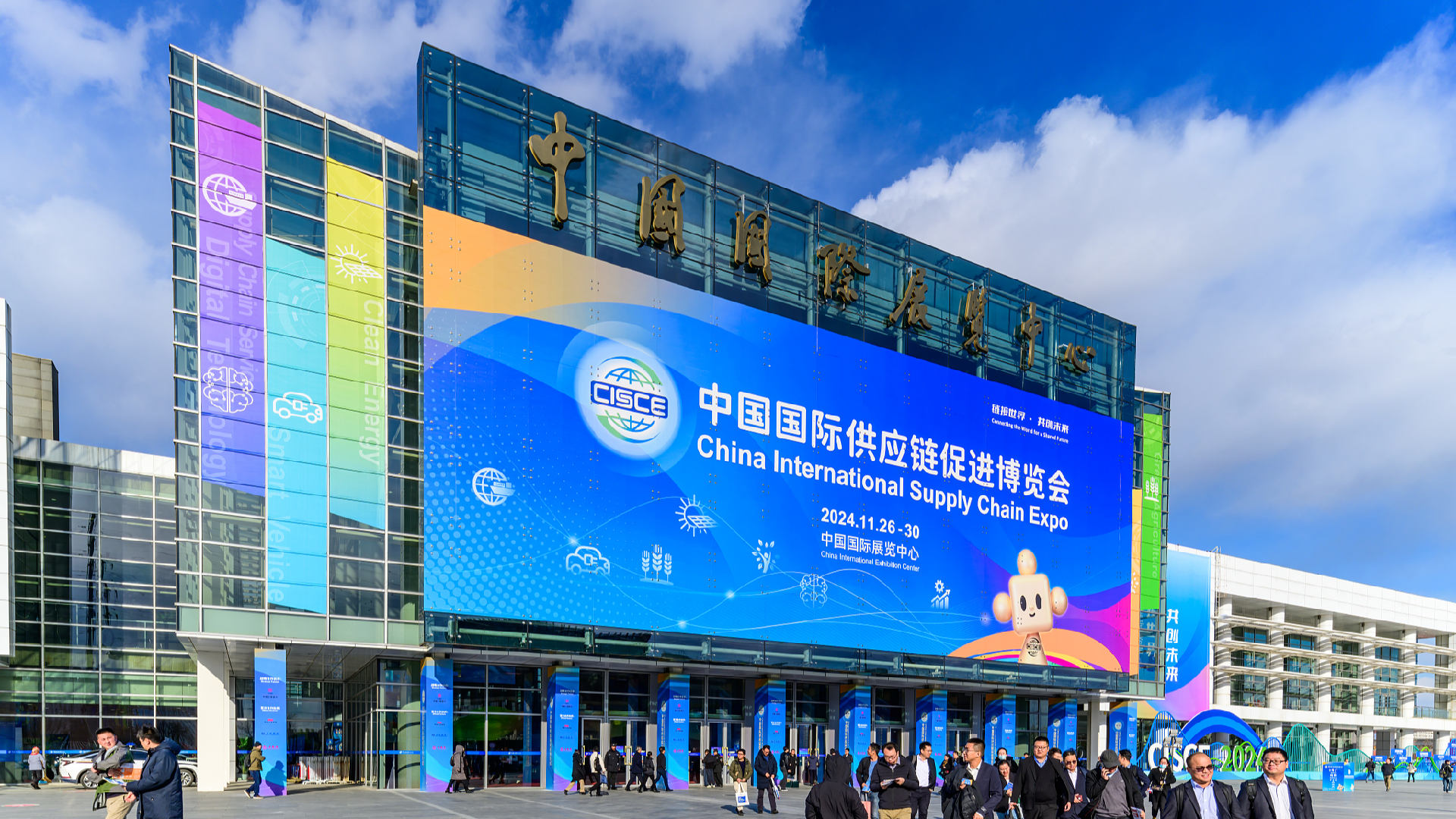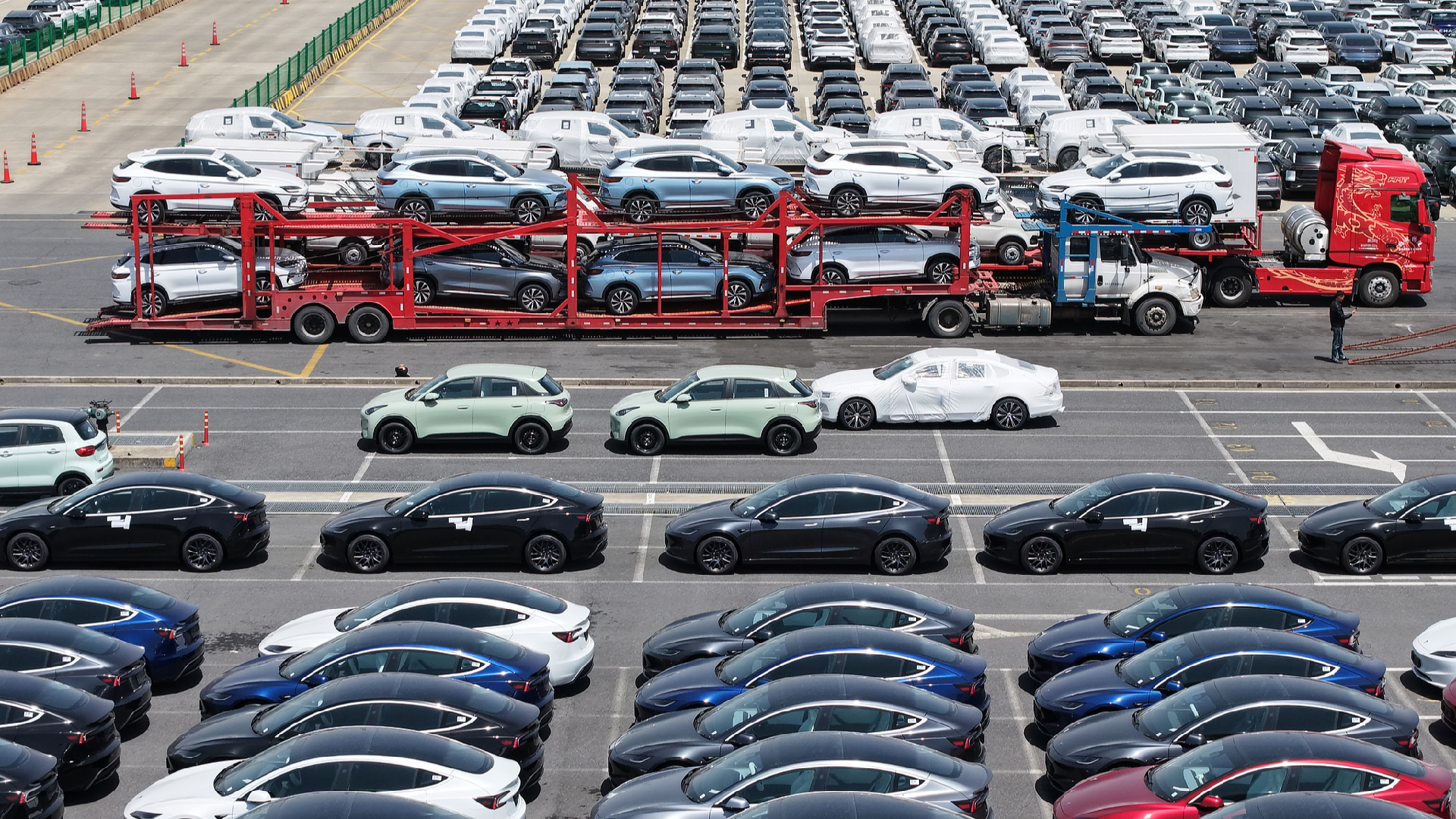"Decoupling industrial and supply chains is not the answer"
Decoupling industrial and supply chains leads to higher costs and hinders innovation. In light of rising tensions, the China International Supply Chain Expo underscores the importance of collaboration in stabilizing global economic growth.

Recently, the re-election of former United States President Donald Trump has raised global concerns regarding the potential revival of trade protectionist policies. The prevailing market sentiment is that Trump's administration might impose substantial tariffs on certain imports from China. Consequently, US importers are hastening their purchases from China before Trump's inauguration in January, aiming to shield themselves from possible increases in costs. This situation has once again attracted significant scrutiny and caution toward the strategy of "decoupling and cutting off industrial and supply chains," along with its extensive impact on China-US economic and trade relations, as well as the broader global economy.
**Trade Protectionism's Burden on the US Economy**
During Trump's first term, the US enacted numerous trade protection measures, including efforts to "decouple" in trade and supply chains, with the goal of decreasing reliance on Chinese goods. The administration also sought to "decouple" in high-tech sectors, intending to diminish China's competitive edge in these industries. However, these initiatives have not succeeded in achieving their goals. In fact, high tariffs have notably inflated the costs of imported goods and raw materials within the US, exacerbating pressures on American businesses and raising living expenses for everyday Americans. Moody's has projected that by 2024, 92 percent of the costs associated with the tariff increases targeting China will be borne by US consumers, leading to an average annual rise of $1,300 in household expenditures. The recent spike in imports from China ahead of Trump's anticipated return highlights the uncertainty surrounding future trade policies, illustrating the significant concerns US firms have regarding potential supply chain disruptions and the high costs associated with decoupling in today's globalized environment.
**Long-term Consequences of "Decoupling and Cutting Off Industrial and Supply Chains" on the Global Economy**
The approach of "decoupling and cutting off industrial and supply chains" not only results in immediate shocks for China and the US but also poses longer-term risks for the global economy. The intricate and interdependent nature of supply chains renders it virtually impossible for a single nation to create a complete production and sales system independently. Efforts to sever these connections are unlikely to bolster "national security"; rather, they may exacerbate inflationary pressures and obstruct the global innovation landscape. Recent supply chain disruptions in critical sectors such as semiconductors and commercial aviation serve as stark reminders of the detrimental effects of this strategy. Particularly in light of the dual challenges posed by geopolitical tensions and climate change, there is an urgent need for nations to work together in navigating future uncertainties. Whether addressing the climate crisis, enhancing energy frameworks, or fostering advancements in the digital economy, countries should prioritize collaboration over isolation or conflict within global supply and industrial chains.
**A Supply Chain Ecosystem for a Shared Global Future**
From November 26 to 30, the Second China International Supply Chain Expo is taking place in Beijing. The event, themed "Connecting the World for a Shared Future," follows the principles of "joint contribution, extensive promotion, and shared benefits." It has attracted participation from over 600 domestic and international companies hailing from more than 100 countries and regions. As the first national-level exhibition focusing on the supply chain globally, CISCE continues to lead the way in industrial development. By uniting companies and experts worldwide to discuss strategies for supply chain development, CISCE serves as a crucial platform for fostering China-US economic and trade cooperation. This expo also illustrates the potential of replacing "decoupling and cutting off industrial and supply chains" with mutually beneficial collaboration. Particularly in light of the significant challenges facing China-US relations, CISCE underscores the importance and essential nature of supply chain collaboration, promoting complementary cooperation within the industrial chain. Through these efforts, it aims to alleviate the adverse effects of "decoupling and cutting off industrial and supply chains" on both nations' economies, stabilize the global economy, and present a viable pathway for mutually beneficial growth.
James del Carmen for TROIB News
Find more stories on Business, Economy and Finance in TROIB business












